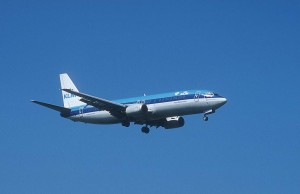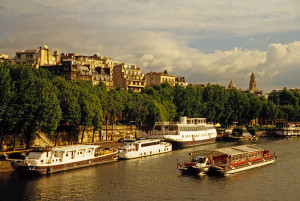In our last post, we posed ten questions that might affect your health and well-being as a traveler. Here are the answers:
1. The direction in which you fly may influence the severity of your jet lag. Other conditions being equal, which direction is most likely to produce bad jet lag?
Answer: B, West to east. When flying west to east, especially across America, you’re more likely to encounter darkness when you arrive, which helps disrupt the body’s “inner clock” (jet lag is caused by disorientation by crossing time zones, which exposure to light seems to ameliorate). Assuming no time zones are crossed, there’s technically no jet lag at all flying north-south or south-north, though you can still feel the ill effects of a long flight.
2. One good way to counter the effects of jet lag is to:
Answer: D, None of the above. To counter jet lag, the trick is to acclimate as soon as possible to your destination. So set your watch to destination time while still in the air, avoid napping (sleep when it’s bedtime at your destination), and avoid alcoholic drinks while flying, since they can disrupt normal sleep patterns and add to dehydration. Instead, drink plenty of water and get whatever exercise you can on the plane.
3. If your insurance company covers doctor bills and hospital stays overseas, buying a supplementary travel insurance policy is a waste of money. True or false?
Answer: False. Few standard health or travel insurance plans cover the cost of medical evacuations – such as flying you back home if you’re incapacitated overseas (which can run to tens of thousands of dollars). Another problem: overseas doctors and hospitals often won’t accept direct payments from U.S. insurance companies, so you may well have to fork over the cash up front, then wait for possible reimbursement. Supplemental policies for overseas travelers can save a lot of grief in such emergencies.
4. When possible, boiling drinking water is considered the safest way to avoid getting traveler’s diarrhea from contaminated water. Another reasonably reliable method is:
Answer: A, Iodine tablets. While iodine tablets aren’t effective in all cases, they are in most. (Treating water with chlorine can also work, but it’s less effective than iodine.) Freezing water, on the other hand, not only doesn’t kill bacteria, it may preserve them. Drinking bottled water is fine if it’s carbonated, but otherwise it may simply be tap water sealed in a bottle – a common scam in some countries. The safest drinks are bottled carbonated water bottled beer or wine, and coffee and tea made from boiled water.
5. When flying, the best seats to request to avoid motion sickness are:
Answer: B, Above the wings. The seats above the wings are typically the most stable, and the most stable seats in any vehicle are the best for warding off motion sickness. (In a car, that’s the front seat.)
6. One way to ward off insect bites (which can lead to malaria and other diseases) is to:
Answer: B, Wear pale clothing. Insects tend to be attracted to bright-colored clothing, along with strong scents and fresh-water ponds and lagoons.
7. During the recent Ebola outbreak in West Africa, a number of would-be travelers canceled their safaris to other African countries like Kenya, Zimbabwe, and South Africa. Which city or cities in Europe and South America are closer to the affected countries of Guinea, Sierra Leone and Liberia than Nairobi, Kenya; Harare, Zimbabwe; or Johannesburg, South Africa?
Answer: E, All of the above. Many cities in Europe and even South America are hundreds of miles closer to West Africa than are cities in East Africa and southern Africa.
8. Which of the following vaccinations should every traveler make sure is up to date before going abroad?
Answer: A, Tetanus and diphtheria. Everyone should be vaccinated against tetanus and diphtheria and then get periodic booster shots. Cholera shots often aren’t effective and are usually only given during an outbreak of the disease. There is no vaccine for Hepatitis C, though you may want to get vaccinated against Hepatitis A.
9. If you are an American citizen and get sick in a foreign country, you can contact the U.S. embassy or consulate there for help with:
Answer: D, All of the above. You can get help with all those situations – just don’t expect Uncle Sam’s representatives to lend you any greenbacks themselves.
10. Dialing 911 for an emergency (police, ambulance, fire, etc.) is standard throughout the world.
Answer: False. While you can dial 911 in much of Central America and some South American countries, as well as a few in Africa and Asia, 112 is common in Europe and 999 is used in the UK and many former British colonies.















One Response to Answers To Travel Health Quiz